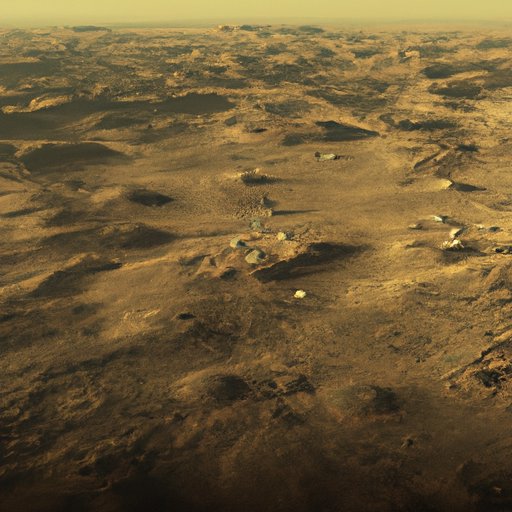
Introduction
As humans continue to explore beyond their planet, the prospect of living on Mars becomes increasingly more realistic. But can humans survive on a planet with harsh environments, low atmospheric pressure, and little natural resources? This article seeks to explore the pros and cons of sustained colonization on Mars, from habitat design to cultural considerations and everything in between.
Pros and Cons
Living on Mars presents potential benefits such as scientific discoveries and technological advancements. However, it also poses significant challenges, such as the harsh environment and isolation from Earth. Colonizing Mars means facing both advantages and disadvantages.
Habitat Design
Designing a habitat to sustain human life on Mars is a daunting task. Mars poses many unique challenges such as drastic temperature changes, high radiation levels, and low atmospheric pressure. But there are potential solutions to these challenges, including utilizing materials from Mars, 3D printing technology and creating a greenhouse ecosystem.
Resources
The availability of various resources on Mars is crucial for sustaining human life. Water, minerals, and other natural resources can be found on Mars, but it will be difficult to utilize them for human consumption. The challenge is producing food and other essential resources when transportation from Earth is not an option.
Health Challenges
Living on Mars has both short-term and long-term physical and psychological challenges for humans. Low gravity, isolation, and high radiation levels can directly affect human health and physical capabilities. Psychological support and exercise programs can aid in alleviating some of the physiological and psychological difficulties associated with living on Mars.
Terraforming
Terraforming refers to the process of altering a planet’s environment to make it more habitable for humans. Terraforming Mars could create an environment with a breathable atmosphere and a stable climate. However, the risks and ethical considerations associated with terraforming must be considered before any actions are taken.
Cultural Considerations
Building a new society on Mars means creating a unique culture and social structure. The challenges faced in establishing a society on Mars include communication with Earth and maintaining cultural connections. It is important to ensure that cultural identities are preserved and respected as humans venture further into space.
Future Implications
The sustained colonization of Mars could have significant implications for science, technology, and human evolution. Long-term colonization could lead to significant advancements in technology, such as terraforming capabilities and interplanetary transportation. However, it is essential to consider the potential drawbacks of sustained colonization, including the impact it may have on the planet and the ethics of colonizing another planet.
Conclusion
Living on Mars presents both opportunities and challenges for humans. We must consider the potential benefits and drawbacks of colonizing Mars and ensure that we are taking ethical considerations into account before making any irreversible decisions. Regardless of any challenges that arise, humans are determined to explore beyond their planet and continue to push the boundaries of space exploration.




